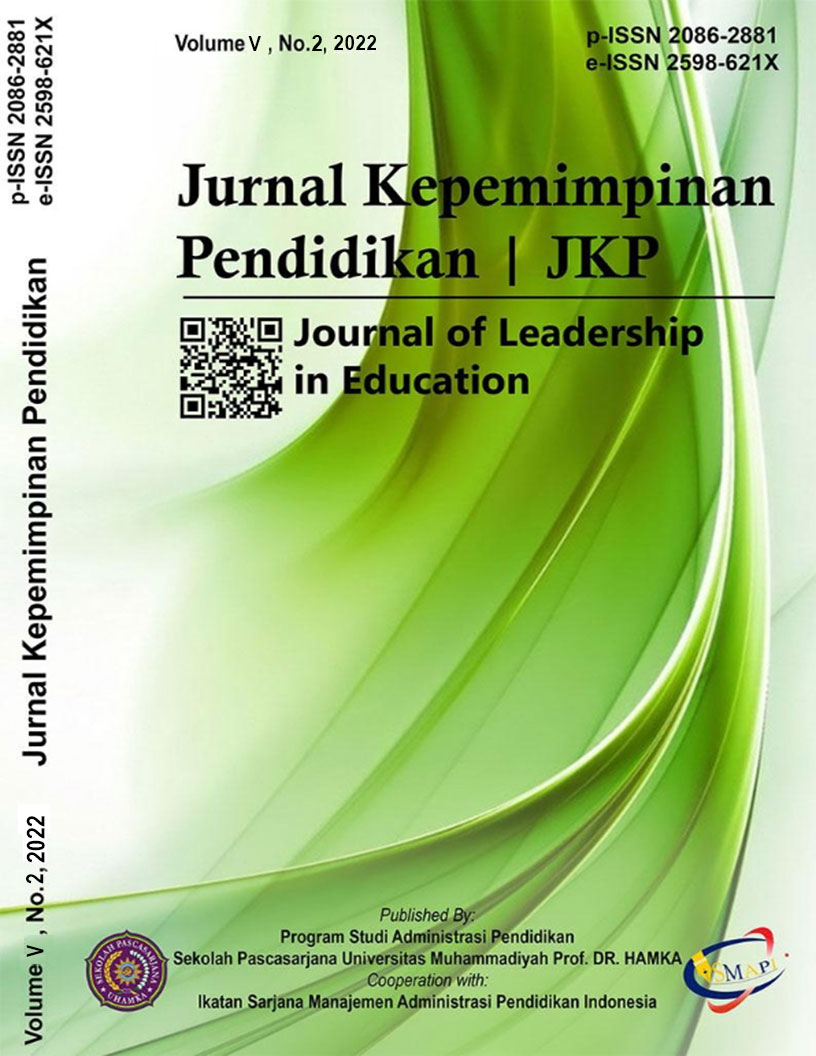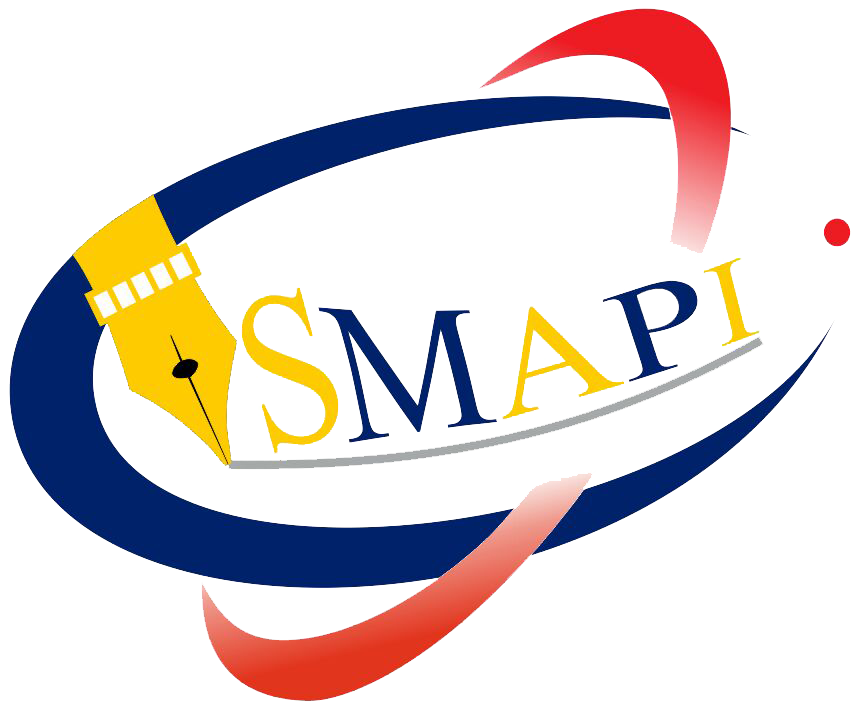EVALUATION OF THE ROLE OF THE SCHOOL PRINCIPLE AS MANAGERIAL IN IMPROVING THE QUALITY OF SCHOOLS
DOI:
https://doi.org/10.22236/jkpuhamka.v5i2.11215Keywords:
Managerial, School, QualityAbstract
The managerial ability of the principal is one of the important factors in order to advance and improve the quality of the school he leads. With this managerial competence, it is hoped that the principal's school will be better because the principal's managerial competence has a strong role in planning, organizing, briefing and controlling. This research uses descriptive qualitative method. Sources of data from this study were the principal (as key informant), vice principal, administration, teachers, students, parents, and alumni. Data collection techniques were carried out through data triangulation as follows: observation, interviews, and documentation. Analysis of research data was carried out through the following steps: 1) collecting data, 2) reducing data, 3)presenting data, and 4) drawing conclusions. The results of this evaluation study are as follows: 1) Principal's managerial ability in planning to improve school quality is not in accordance with the criteria, 2) Principal's managerial ability in organizing quality improvement is not in accordance with procedures, 3) Principal's managerial ability in directing school quality improvement as well not going well, 4) managerial ability in controlling or supervising the principal in improving the quality by monitoring and evaluating is still not satisfactory. From the overall managerial level of the Principal, it can be stated that the Principal of MTs Nurul Qur'an Cengkareng, West Jakarta, in terms of improving the quality of schools has not gone well based on indicators that refer to the components of context, input, process, product.
Downloads
References
Arikunto, Suharsimi & Jabar, Cepi S.A., 2014. Evaluasi Program Pendidikan: Pedoman Teoretis, Praktis Bagi Mahasiswa dan Praktisi Pendidikan. Jakarta: Bumi Aksara
Arikunto, Suharsimi. 2013. Prosedur Penelitian Suatu Pendekatan Praktek. Jakarta: PT. Rineka Cipta.
Sugiyono. 2013. Statistika Untuk Penelitian. Bandung: Alfabeta
Sugiyono. 2014. Metode Penelitian Pendidikan Pendekatan Kuantitatif, Kualitatif, dan R&D. Bandung: Alfabeta.
Sugiono. 2017. Metode Penelitian Kuantitatif, Kualitatif, dan R&D. Bandung: Alfabeta
Stufflebeam, D.L. 2003. The CIPP Model for Evaluation. The article presented at the 2003 annual conference of the Oregn Program Evaluator Network (OPEN) 3 Oktober 2003. Diunduh di http://www.wmnich.edu. /evalctr/cippmodel pada tanggal 2 Januari 2012
Stufflebeam, D. L., & Shinkfield, A. J. 2007. Evaluation Theory, Model, & Applications. San Francisco: Jossey-Bass.
Stufflebeam, D. L., & Coryn, C. L. S. 2014. Evaluation Theory, Models, & Apllications (Second). San Francisco: Jossey-Bass
Tayibnapis, Farida Yusuf. 2008. Evaluasi Pendidikan dan Instrumen Evaluasi. Jakarta: Rineka Cipta

Downloads
Published
How to Cite
Issue
Section
License
Copyright (c) 2023 Oki HENDRAWAN

This work is licensed under a Creative Commons Attribution 4.0 International License.














